The health benefits of probiotics on humans are well known. But did you know that you can also give them to your cat? Specially formulated for our fluffy friends, probiotics for cats have the same benefits as those for humans. What are the benefits of probiotics for your cat? When should I give them? For how long? Which probiotics should you choose? Read all about it in this article.
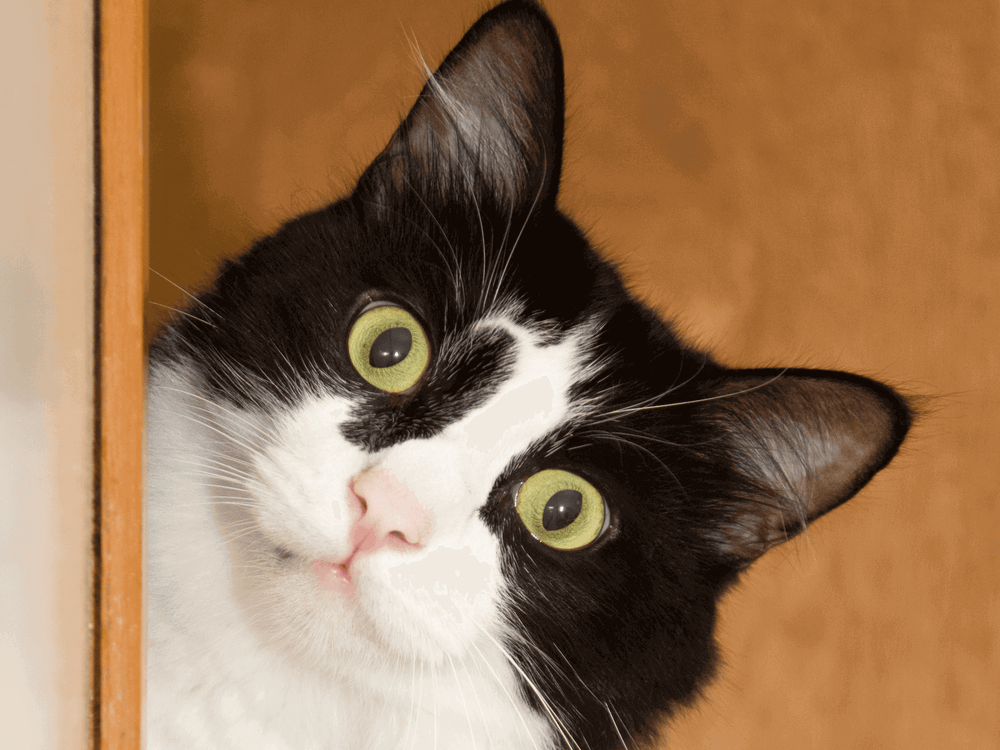
What are probiotics?
First of all, we should not confuse probiotics with prebiotics. There is a big difference between probiotics and prebiotics .
Probiotics are non-pathogenic live microorganisms that, when ingested in sufficient quantities, have a beneficial role for our cats by improving their intestinal flora and digestive tract. These microorganisms are essentially “good” bacteria. When consumed, they interact with other bacteria (sometimes pathogenic) present in the digestive tract of our whiskers, by forming a barrier between the walls of the tract and the pathogenic bacteria. They allow the microbiota to rebalance itself and take on its natural role. Their consumption can thus contribute to improving the composition of their intestinal flora, strengthening their digestive and immune health.
Prebiotics are not living microorganisms, but molecules that feed the “good” bacteria present in the intestines of our felines. These include fibers or flavonoids that will feed these essential small intestinal bacteria. To have a beneficial role on the body, prebiotics need a favorable “terrain”, carried out by probiotics, which will directly interact with “bad” bacteria.
When to give probiotics to your cat?
Probiotics are recommended in cases of:
- Digestive disorders : diarrhea, loose stools, constipation, vomiting, flatulence. The use of probiotics supports your little cat's intestinal microbiota.
- A change in diet . When our cats' diet (kibble and/or pâté) is changed, their digestive system can be disrupted and lead to digestive problems.
- A stressful episode, such as moving, a visit to the vet, a trip, the arrival of a new cat or a baby in the home, a hospitalization, but also when you are away for a few days... Each unusual event can be a source of stress for your cat and disrupt its digestive system.
- Antibiotic treatment : before, during and one to four weeks after stopping treatment to allow time for the digestive flora to rebuild properly.
- A decrease in appetite resulting from drug treatment, an episode of stress or simply a change in diet that disrupts the routine of our felines. Our cats are greedy animals, but also very gourmet, particularly demanding about the contents of their bowl. And the slightest change can indeed put them off.
In our cats, we distinguish two categories of eaters: the wary (neophobes) and the curious (neophiles). As explained in our article “ Why doesn’t my cat eat anymore ?”, neophobes are more numerous, especially in older cats whose eating habits are becoming established. They prefer food that is familiar to them, rather than discovering new flavors. Neophobia does not only affect older cats, it also manifests itself in cats that have not been accustomed to dietary diversity during the first weeks of their life. In this case, probiotics in powder form (there are probiotics in capsule form) can help some neophobic cats. Generally very appetizing, they thus stimulate their appetite.
In addition to these situations, probiotics for cats can also be given throughout the year as a preventative treatment or at each change of season (4 times a year) to strengthen the digestive health and immune system of your mustachioed friend.
Are probiotics suitable for all cats?
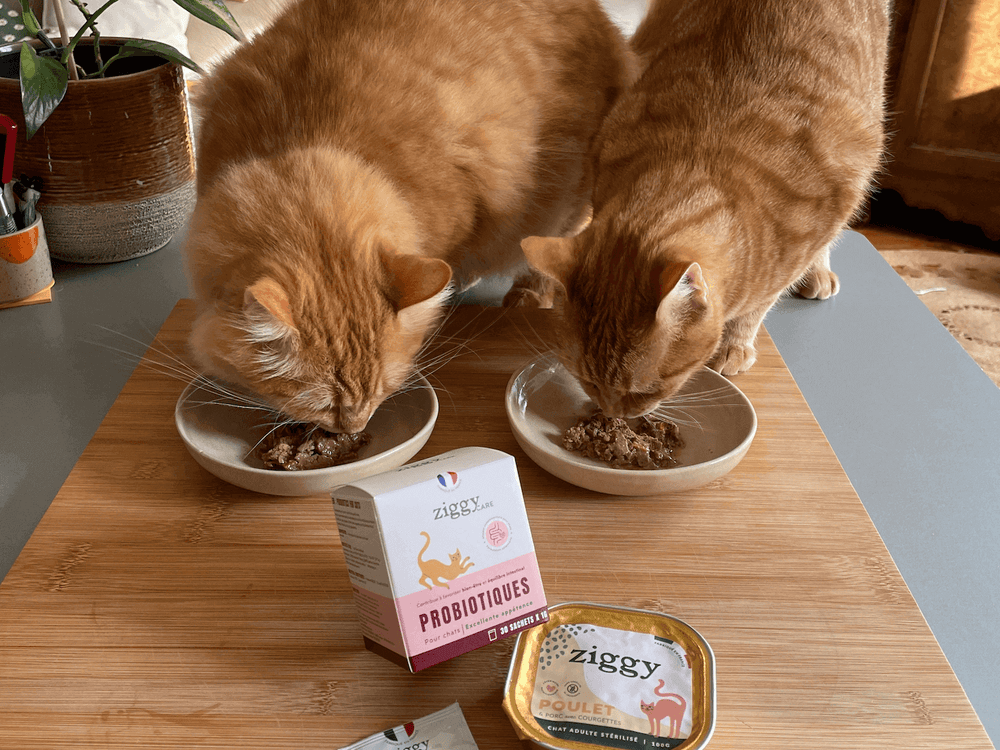
Probiotics for cats can be given to all cats, whether they are kittens, adults, seniors or those suffering from a pathology.
The kittens
It is entirely possible to give probiotics to a kitten , as soon as they start eating solid food. This transition to a solid diet can cause minor digestive problems, so probiotics will be all the more beneficial to better support this delicate transition for their little belly. They will also be beneficial at the time of adoption, a time that can be very stressful for the kitten who has to leave its mother and find itself in a new home. Or following its vaccination, sterilization or taking medication against coryza or other common pathologies in baby cats.
Adult cats and senior cats
Adult cats can also benefit from the benefits of probiotics for all the reasons mentioned above: in the event of digestive problems, stress, taking antibiotics, a change in food, a loss of appetite or simply as a preventative treatment.
In senior cats over 8 years old , probiotics are particularly recommended, because their digestive flora is more sensitive and more likely to become unbalanced.
Sick cats
Probiotics can also be given to cats suffering from a pathology: diabetes, renal failure, urinary disorders (idiopathic cystitis, urinary stones), IBD (Chronic Inflammatory Bowel Disease) .
Contrary to popular belief, probiotics are not discouraged. On the contrary, they promote better immune defenses and strengthen their digestive flora. However, do not hesitate to ask your veterinarian for advice.
How long should you give your cat probiotics?
Sometimes, a few days are enough to see the benefits of probiotics on your little cat. But for real effects, it is recommended to take a course of at least 30 days. Probiotics can also be given over several months or throughout the year. However, ask your veterinarian for advice before starting a course.
Which probiotics should you choose for your cat?
There are many probiotics for cats, all proving the same benefits. But be careful, they are not all equal. For them to be effective, probiotics must contain strains of bacteria that are resistant enough to reach the cat's intestines. They must also be qualitative and in sufficient quantity to play their role on the microbiota. Among the quality strains, we find in particular Enterococcus, Bifidobacterium and Lactobacilli.
There are also two types of probiotics: powder or capsule. If your cat is reluctant or has difficulty swallowing capsules, opt for powdered ones, which can be sprinkled directly onto its kibble or pâté.
Ziggy Care Probiotics for Cats and Kittens
At Ziggy, we believe that a happy tummy = a happy cat.
We have thus developed our own probiotics to take care of your cat's digestive health. Formulated by Dr. Vet Géraldine Blanchard, Ziggy Care probiotics contain the probiotic Enterococcus Faecium NCIMB 10663 (4b1707) in a validated quantity, to help promote good intestinal transit, healthy microflora and strengthen the natural immune defenses of your whiskered one.
With a unique formulation, Ziggy Care probiotics come in powder form contained in a small one-gram sachet, to be sprinkled every day on your cat's kibble or on your cat's pâté during the day (morning, noon, evening).
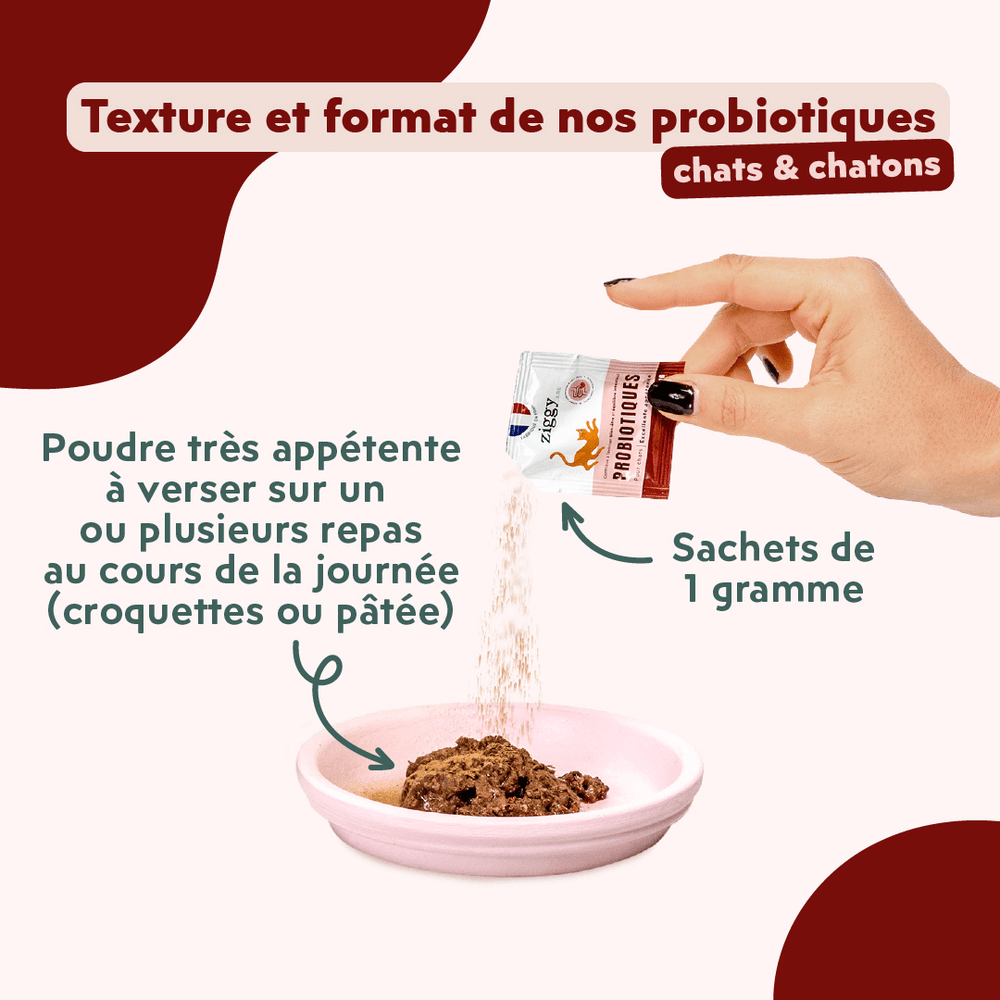
Highly appetizing, Ziggy Care cat probiotics are unanimously loved by our felines, even the most difficult ones. A new well-being ritual that makes all our cats purr!



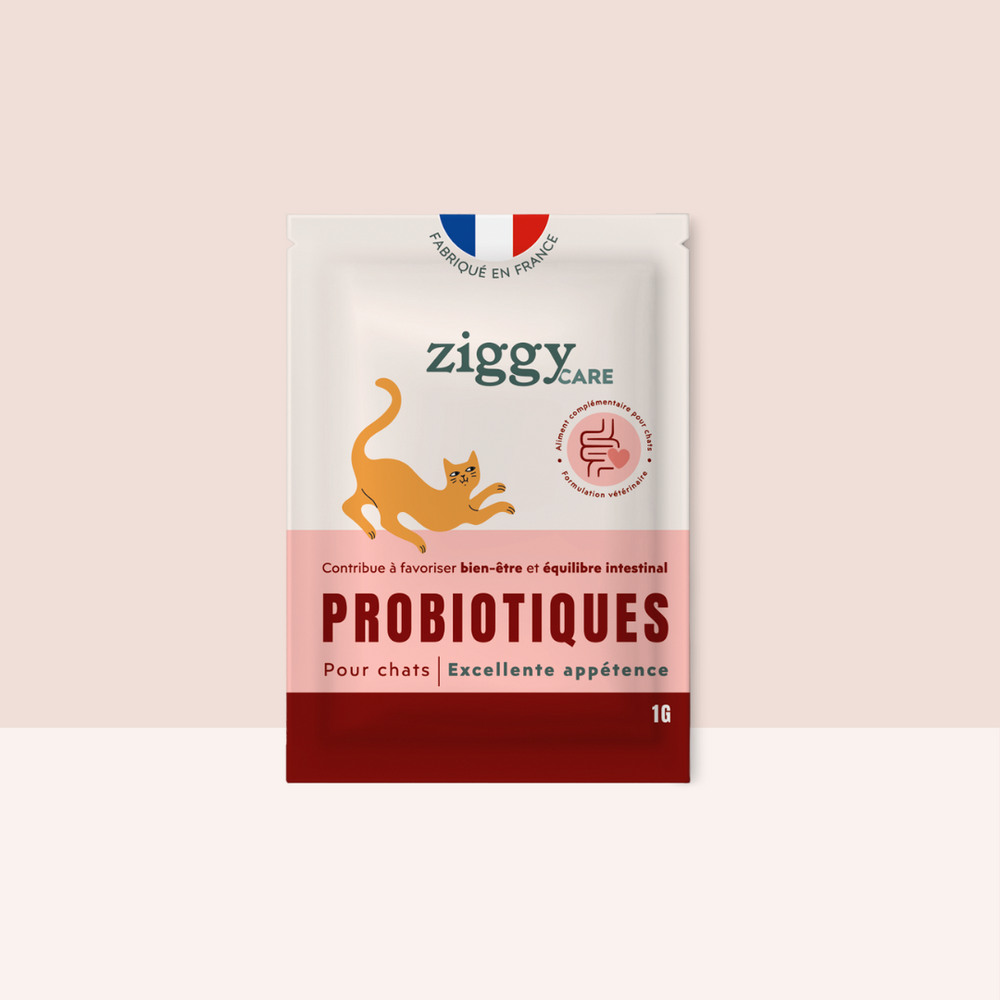
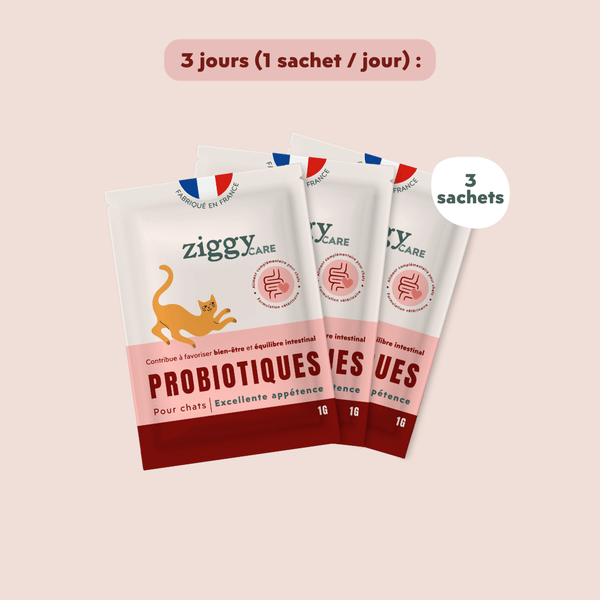

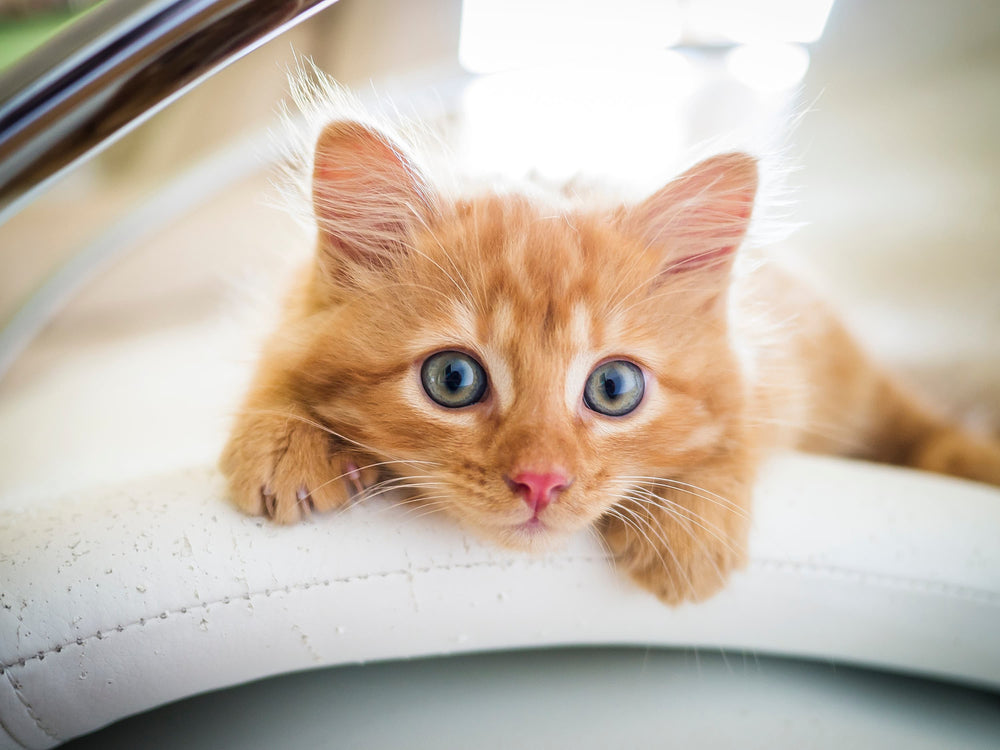
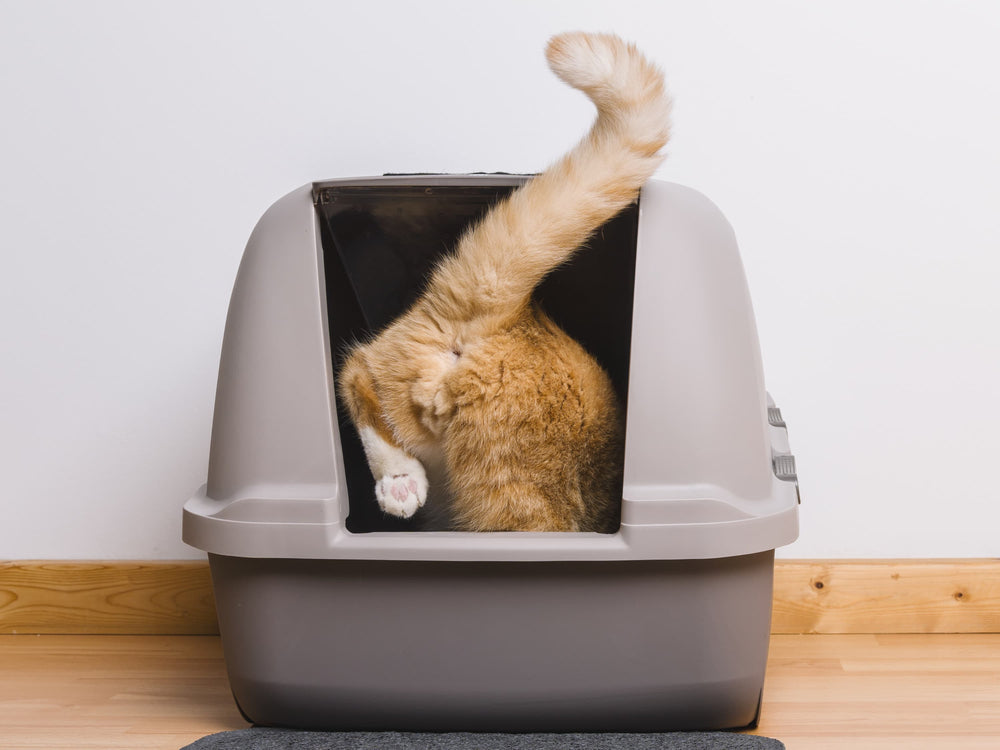
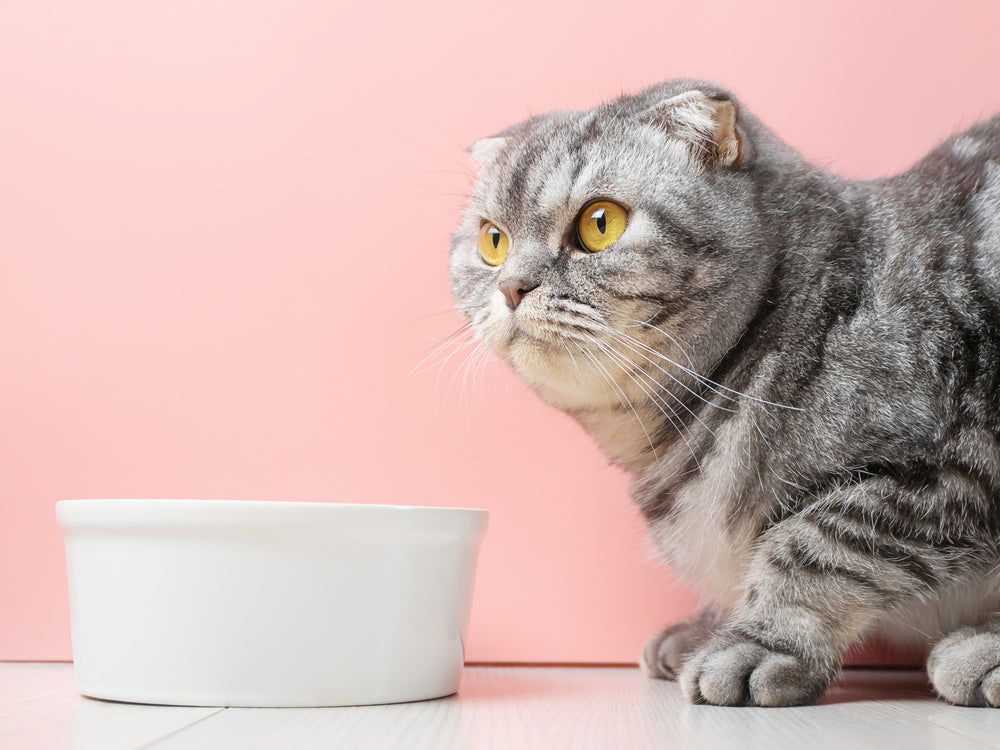
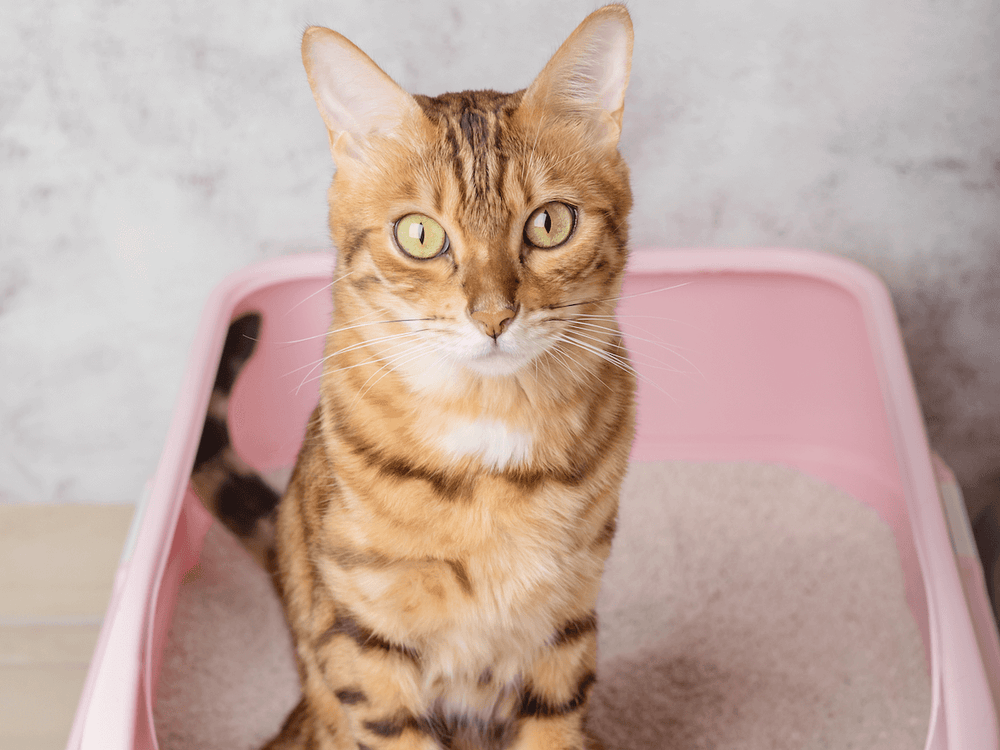
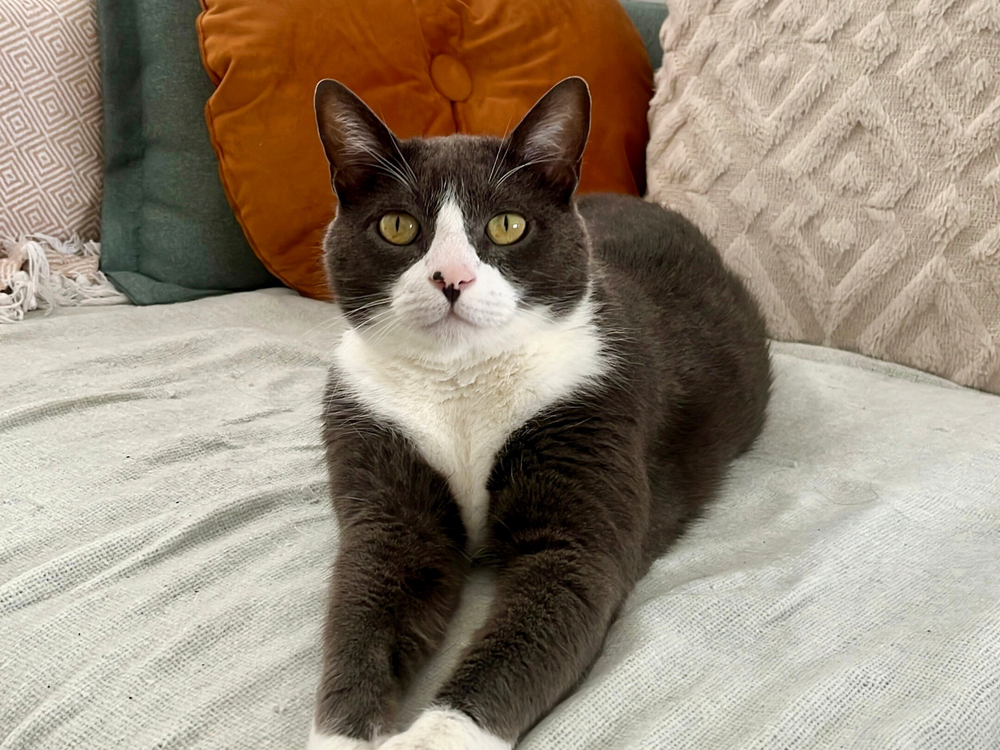
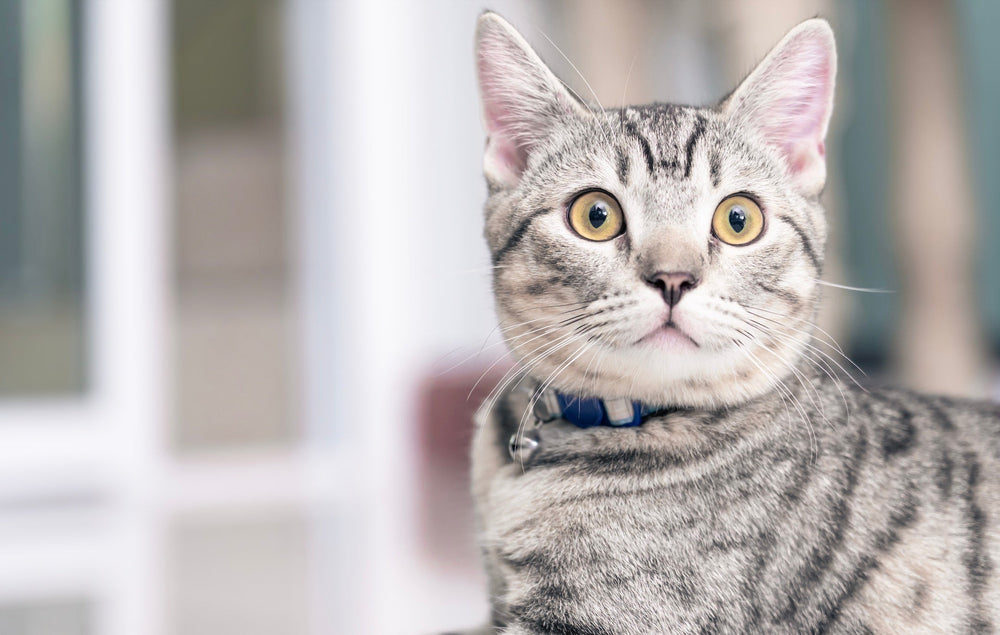
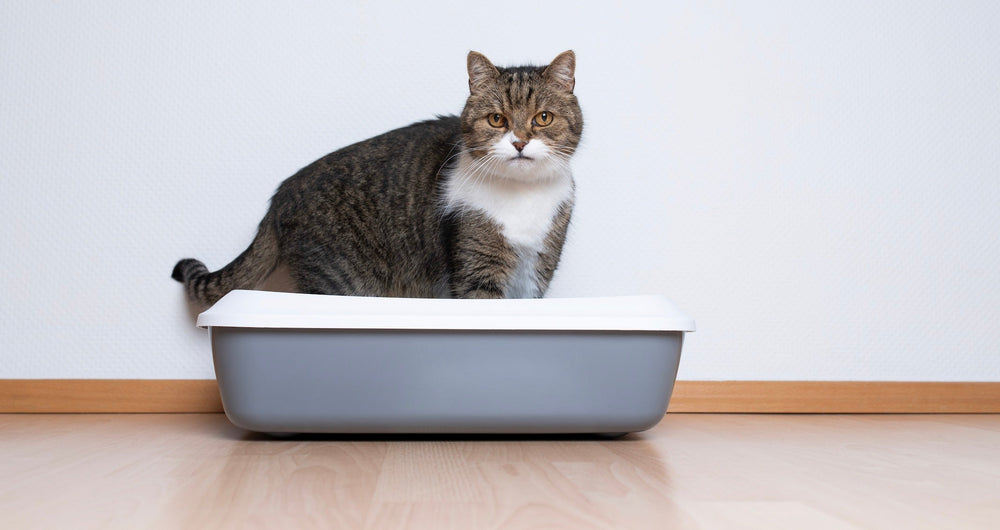
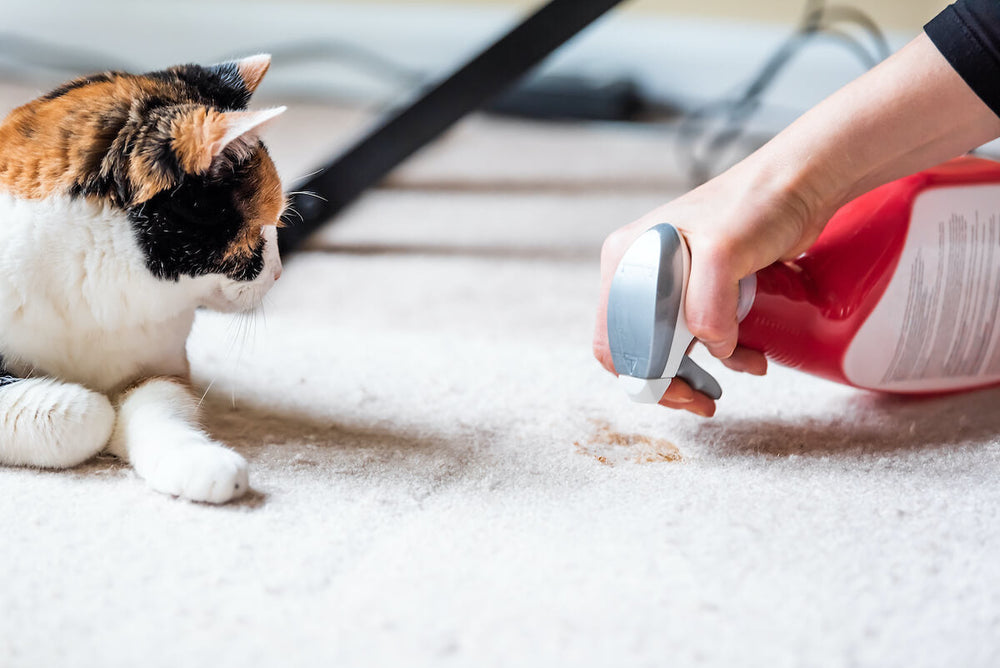
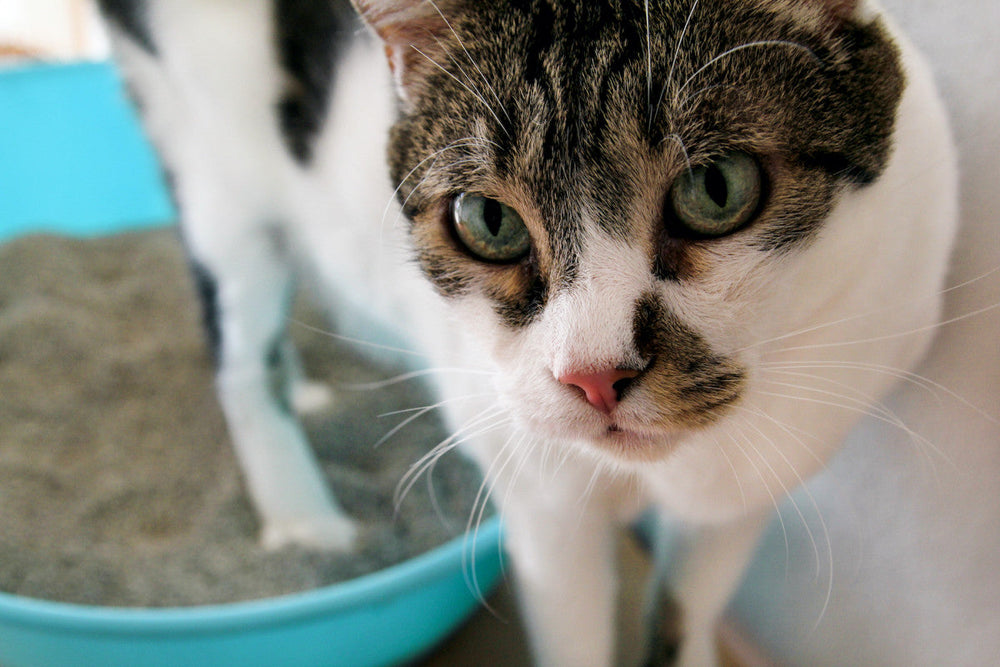


Bonjour Sophie,
Merci pour votre commentaire.
Vous pouvez donner nos probiotiques à tous vos chats. Ils sont adaptés aux chatons, aux chats adultes, mais aussi aux chats souffrant d’une pathologie. Nos probiotiques ont été formulés par notre vétérinaire spécialiste en nutrition clinique, le Dr Vétérinaire Géraldine Blanchard. Leur formulation est unique. Notre vétérinaire a choisi l’Enterococcus Faecium NCIMB 10663 (4b1707), à l’efficacité validée et en quantité efficace permettant de favoriser la bonne santé et l’équilibre microbien de l’intestin.
Si vous avez d’autres questions, n’hésitez pas à nous écrire directement par email à hello@ziggyfamily.com.
Plein de caresses à vos moustachus. 💛
L’équipe Ziggy
J’ai 7 chats. 2 seniors. A qui dois-je favoriser la prise de probiotique?
Pourquoi n’y a-t-il qu’une seule souche? (Pas de lactobacillus ni bifidobacterium)?
Pas de postbiotique?
Probiotique ?
Même si le probiotique n’est pas une souche vivante, il est important dans le rôle de la nutrition des bonnes bactéries.
Leave a comment